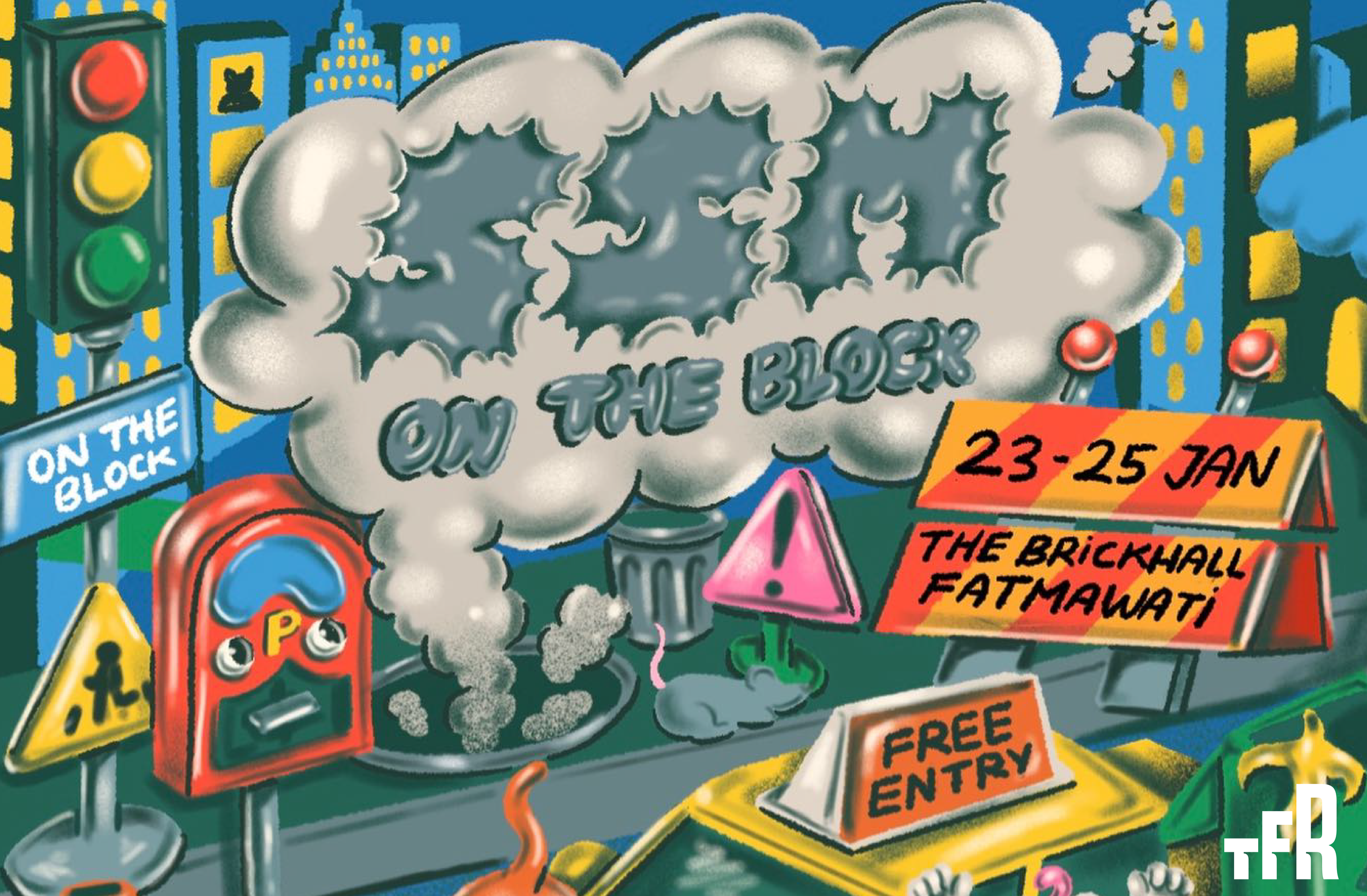Indonesia’s musical theatre industry is reviving, but…
Written by Ardela Nabila & Elma Adisya | Read in Indonesian
Amidst her busy schedule as an employee at a private company in Jakarta, Desmonda Cathabel never fails to devote her time to pursue a career in musical theatre.
Before being cast as Princess Jasmine in the musical “Aladdin” in the UK and Ireland in 2023, Monda, who studied at the Royal Academy of Music in the UK, has been involved in various theatre communities since 2014.
Driven by her passion for musical theatre, Monda mustered up the courage to dive into the field. She then co-founded the Jakarta Performing Arts Community (JPAC) and became a professional theatre actress.
Desmonda Cathabel | Source: JPAC
“I’m quite proud because I’m able to witness the progress of Indonesian musical theatre. Since I entered the industry and founded the JPAC, many new communities and companies, musical projects, as well as new talents have emerged. There really is a new generation in musical theatre,” Monda said in a recent interview with TFR.
In countries like the UK, performing arts such as musical drama are a strong, integral part of culture. Going to an open arena to seek entertainment through performing arts is a common practice. This habit is also encouraged by the massive development of theatre infrastructure by the local administrations.
In Indonesia, performing arts have actually existed for hundreds of years. Lenong from Betawi, for example, is believed to have existed since the early 20th century. There are also randai from West Sumatra, luduruk from East Java and makyong from Riau which, during their heyday, were no less popular than the grand and glistening shows of the present.
The popularity of traditional performing arts has somehow dwindled, but the Indonesian theatre industry is undergoing a revival along with the presence of film adaptation titles, starting from “Legally Blonde” by the JPAC at the end of 2023 to “Joshua Oh Joshua” which took place just recently.
Popular, but facilities still lacking
"Musikal Petualangan Sherina" has sold out tickets throughout its 18 runs. Tickets for the first day of “Keluarga Cemara”, which was also adapted from the movie and will be showing through the 14th of July, also sold out.
This reflected the high enthusiasm of the Indonesian public for musicals, especially those adapted from famous titles. Unfortunately, this trend is not backed up by infrastructure improvements.
Unlike in the UK, where ticket prices vary, musical show tickets in Indonesia are still relatively expensive because the lack of infrastructure drives production costs as a whole.
“From what I can see, Indonesia lacks theatre buildings that can adjust the sizes of audience in order to make ticket prices affordable while still profitable for the production team. In the UK, what makes every production confident to sell out tickets is that not all theatres are big; medium-sized theatres also exist,” Monda explained.
JPAC President Rio Rahmansyah shared the same opinion. He expressed concern regarding venue rental prices which are deemed unfriendly for medium-scale musical productions.
Rio Rahmansyah | Source: JPAC
“The biggest challenge is infrastructure, because the venue options are limited so everyone is scrambling to book them. Truthfully, for infrastructure such as venues and training grounds, we are very dependent on government subsidies. Unfortunately, the number of these venues is negligible,” he said.
To present the best musical theatre experience to the audience, a space that can accommodate a large audience is not the only necessity. There are also other variables, such as sound and lighting quality, that need attention and cost quite a bit.
Challenges also come from the audience
It seems that musical theatre communities and organisers such as the JPAC still have a long way to go to eliminate misconceptions regarding performing arts among the general public.
Even though more people have become aware of this matter, Rio regretted that there is still a stigma towards people who seek entertainment at art centres.
“Our homework is to show that live musical shows like these are another form of entertainment aside from movie theatres. Actually, there are many excellent titles. So our dream is that in Jakarta, people can make [theatre] shows an everyday entertainment, that they can spend time watching the shows without misconception,” Rio explained.
Rio and his partners are making tireless efforts to expose more people to musical theatre. One of them is by presenting shows that are relatable to everyday life.
“We also take advantage of social media, whether during auditions or for marketing, like [creating] TikTok challenges. We also collaborate with KOLs (key opinion leader). We at the JPAC are striving to make musicals affordable for all so that they can be enjoyed by people from all walks of life.”
Cross-industry collaboration is also essential to support the Indonesian musical theatre ecosystem and strengthen the various elements in it. This is because theatre production involves more than actors performing on stage.
“The people behind the stage also play important roles. In terms of internal production, over the past few years it is easy to find new actors, but finding crew members is quite difficult and they are rare. We end up working with the same team. So cross-industry collaboration such as with make-up artists, stylists and audio technicians is necessary. Apart from reducing costs, it also allows them to display their products or creations," said Rio.
Monda agreed, saying that there are still many variables that need to be fixed if Indonesia wants to have an advanced and sustainable musical theatre ecosystem.
Support from external forces outside the government is also needed in the form of funding to help cover production costs.
“The enthusiasm is there, the talents are there, but the funding and infrastructure is zero, so it is hard to be sustainable and people cannot make a living out of it. So a funding boost is crucial, be it from the government or individuals who want to contribute. Of course, what must also be enhanced is investment in education, because so far theatre is only an extracurricular activity and not included in the art curriculum," Monda concluded.





















